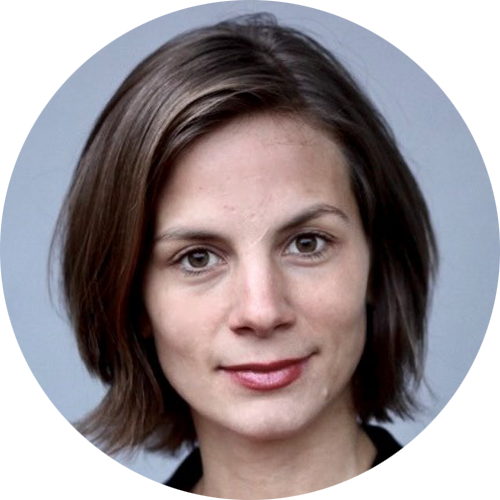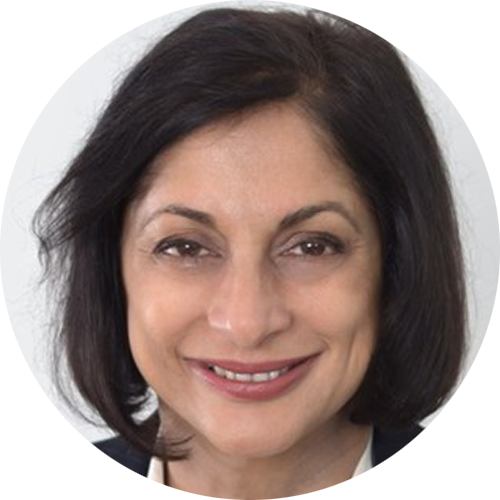The Role of Data Science I: The Potential of Data Science, Technology, and Innovation
Panel A: Prediction Models
This panel will focus on exploring the state of the art of predictive modelling of the climate change/security nexus.
In this first session on the role of Data Science, the panellists will outline current ways in which big data is used to predict emerging security risks and conflicts induced by climate change. The difficult task of prediction models is that they are trained on historical, comparably more stable patterns, while they are asked to predict for a considerably more unstable future. Given this uncertainty, this panel advances answers as to how insights on vulnerabilities and avenues for adaptation may be identified and facilitated by the use of data and new technologies.
Thereby questions surrounding the limitations and possible improvements of predictive climate/security modelling are also addressed:
- How can we model and account for the loss of biodiversity, as well as exogenous shocks for predicting future conflicts?
- In which way can the transparency of algorithms and the ethical use of AI be sustained amidst the pressure to innovate, as to ensure their safe employment and thereby build trust and acceptance of the end users?
- Which time and spatial scales should be applied for modelling on which issue?
- What are the limits of machine learning and predictive models and where do we go from here?
- How can complex but accurate early warning predictions involving multiple insecurities be translated into concrete conclusions for practitioners?
- Which data literacy training and learning capacities should we build to make policy makers knowledgeable of the potential and limits of data science?
Building on the input presentation of the Federal Foreign Office’s own PREVIEW Data Science Visualization Project “Climate & Conflict”, this panel will discuss diverse approaches and projects concerning the effective visualization of climate change related security implications.
To that end, the panelists will discuss how to navigate the diverse needs of practitioners and policy experts, such as being both scientifically accurate and visually appealing, providing a breadth of information and communicating uncertainty, while also developing a convincing narrative for policy makers.
With the ever growing possibilities and trends in geospatial mapping and visual analysis in the recent years, conceptual questions - such as the utility of certain data sets and indices - are ever more pressing.
This leads to the need of addressing questions, such as:
- What is being modelled and why?
- Which indicators are selected to that end?
- How can we effectively visualize complex causality and causality chains, yet without implying causalities that have not been confirmed?

Prof. Nina von Uexkull
Nina von Uexkull is Associate Professor of Peace and Conflict Research at Uppsala University, Sweden, and Director of the Uppsala Rotary Peace Center. She has published widely on the impacts of climate change and natural hazards on armed conflict and human security, combining advanced statistical methods with surveys and field interviews. Her work has been published in among others PNAS, Journal of Politics, Journal of Conflict Resolution, Journal of Peace Research and Nature.

Dr. Alexander de Sherbinin
Alex de Sherbinin is the Associate Director for Science Applications and a Senior Research Scientist at the Center for International Earth Science Information Network (CIESIN), an environmental data and analysis center within the Climate School at Columbia University. Dr. de Sherbinin is an expert on climate-related mobility, which includes voluntary to forced migration, displacement, resettlement, and seasonal movements. He directs the Climate School’s Climate Mobility Network, Lectures in Climate Mobility at the Climate School, and leads the modeling team for the World Bank’s Groundswell report series and the Africa Climate Mobility Initiative (ACMI), and has lead authored articles in Science, Scientific American, Climatic Change, WIRES Climate Change, The Geographical Review, and Environmental Research Letters. He holds a master’s degree in geography from Syracuse University (USA) and a PhD in geo-information science from ITC-University of Twente (Netherlands). For a publications list and more information visit http://www.columbia.edu/~amd155/.

Mr. Moritz Stefaner
As a self-employed “Truth and Beauty Operator”, Moritz Stefaner keeps chasing the perfect shape for information. With a background in Cognitive Science and Interface Design, his work beautifully balances analytical and aesthetic aspects in mapping complex phenomena to support data–driven decision making. He is the record winner of the Kantar Information is Beautiful awards and his work has been exhibited at Venice Biennale of Architecture, SIGGRAPH, Max Planck Science Gallery, Fondation EDF, and Ars Electronica. In the past, Moritz has helped clients like the OECD, Google News Initiative, Salesforce, World Economic Forum, Deutsche Bahn and the Max Planck Research Society to find insights and beauty in large data sets. As a writer, co-host of the Data Stories (https://data-stori.es) podcast, and sought-after keynote speaker and workshop facilitator, Moritz Stefaner continues to excite more and more people about the magic that can emerge when art and science connect. https://truth-and-beauty.net/

Dr. Jonas Vestby
Jonas Vestby is a Senior Researcher at PRIO. He wrote his Phd thesis on “Climate, development, and conflict: Learning from the past and mapping uncertainties of the future”. Vestby has mainly worked with quantitative modeling of violent conflict, for causal inference, short-term prediction/early warning, and long-term forecasting/scenario building. He has published in among others Nature Communications, World Development, Global Environmental Politics, and Journal of Peace Research.

Mr. Thomas Mayer
Thomas Mayer is the Technical Lead at PREVIEW at the German Ministry of Foreign Affairs (FFO). He is a military analyst and computer scientist by training and works for PREVIEW since 2016.
Within PREVIEW Thomas is responsible for data analytics, conflict prediction and webbased data visualization tasks and is the Head of a multidisciplinary development team including data scientists and political analysts.

Ms. Anya Sitaram
Moderator
Anya Sitaram is a documentary producer, communications consultant and professional conference moderator specialising in health, science and international development. A former Health and Science correspondent and BBC World News anchor, Anya now runs Rockhopper Media (www.rockhopper.media) an award winning television and film production company. Anya has overseen scores of documentaries which have run on channels around the world including BBC World News, PBS, Discovery, Nat Geo and Al Jazeera among others. Anya began her career as a BBC trainee before becoming ITN Health and Science Correspondent and later a presenter on the BBC’s flagship science programme Tomorrow’s World.